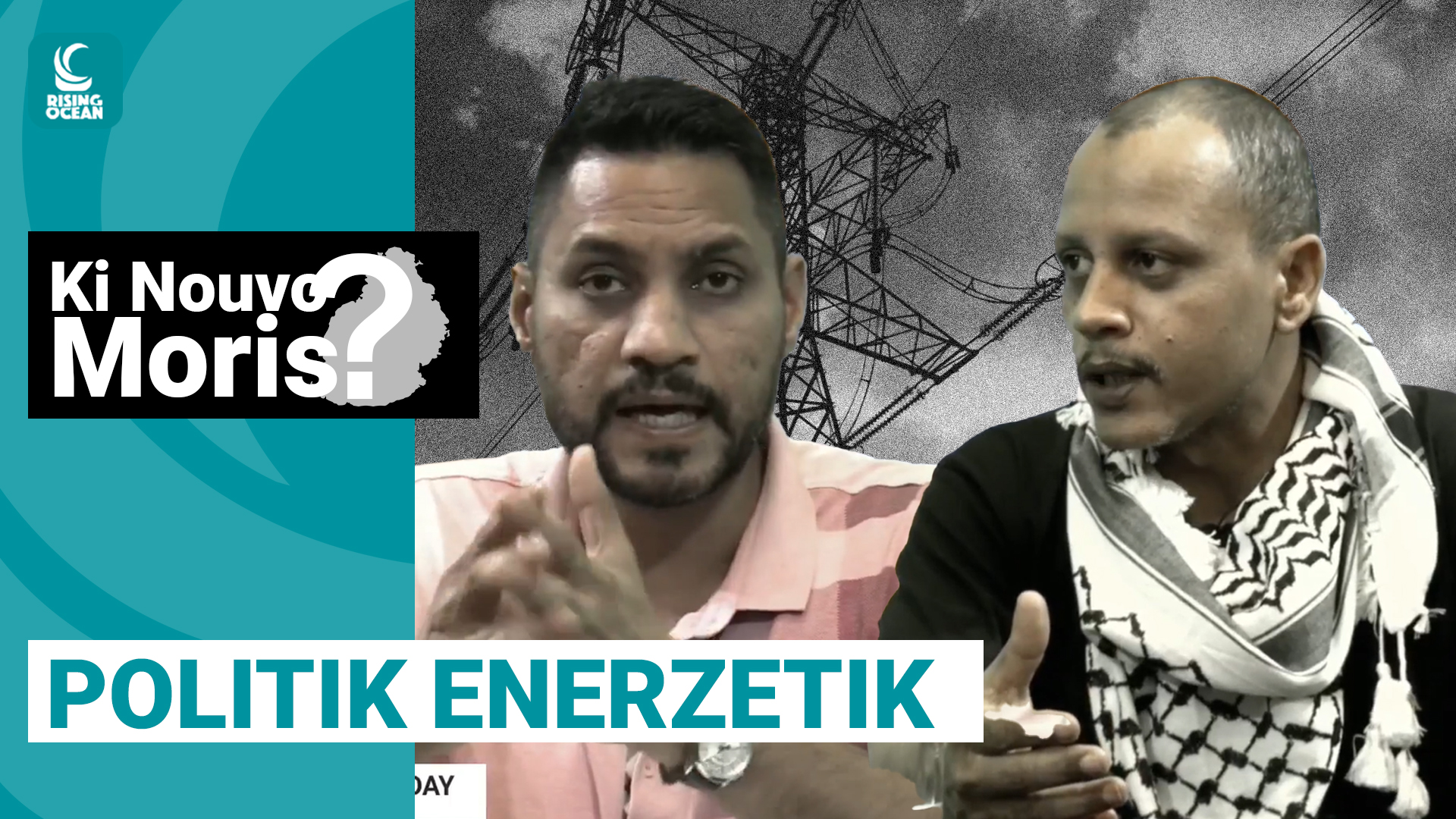The energy policy adopted in Mauritius has always been the subject of debate. Indeed, the production of energy for the island is in the hands of the independent power producers, even though the CEB has the capacity in terms of machinery to produce more. In 2022, the Mauritian government reiterated its interest in moving towards greener energy. A roadmap for an energy transition with the aim of reaching 60% renewable energy by 2030 was then set up. To elaborate more on this theme, the Ki Nouvo Moris set had as a guest Michel Chiffonne, a member of the national committee of Rezistans ek Alternativ (ReA). He acknowledges that there is a stranglehold on decisions regarding the energy sector. Ashvin Gudday hosted the show.
An observation of energy policy in Mauritius.
For the past 20 years, Mauritius’ energy policy has remained unchanged. Although each party that has been in power advocates the increase of renewable energy, it is the opposite that can be viewed. For instance, the rate of green energy production is declining. The eco-socialist activist also points out that there has been a policy of privatizing electricity production. Electricity, which was initially a basic utility, has been transformed into a commodity by those in power to make profit for what is known as independent power producers (IPPs).
For instance, several contracts were allocated to Independent Power Producers (IPPs), representing 55% of the total electricity produced in Mauritius. The problem with this production by private companies is that it jeopardizes the democracy of the country because those who own the means of energy production can impact the decisions of the government in place.
“Everything is done in the interest of the IPPs. It is the reform of the sugar industry that has created this privatization of electricity production.”
Another thing that deplores Michel Chiffonne is the fact that the contracts between the state and the IPPs are not put in the public domain. This lack of transparency regarding the population is a sign that the government is not acting in the interest of its population.
As for the measures announced in the 24/25 budget, Michel Chiffonne confides that they have been seen and reviewed. Every year, the same speeches are made by each party in power. Between solar panels on all buildings and electric vehicles, nothing really avant-garde has been announced.
Solutions.
Michel Chiffonne proposes that the Mauritian population also produces energy, which will enable both planters and citizens to be independent from industries.
“Rezistans ek Alternativ and its allies are brimming with ideas. »
Michel also points out that it is high time for the CEB, the small planters, to obtain their independence. It is also crucial to have an independent government that is not at the mercy of energy producers.
Conclusion!
As a result, the democratization of the production of energy will benefit the entire population of Mauritius. The power shift will contribute to the revolution of energy and food production since it will bring food sufficiently to Mauritius and thus cut the dependency on importation. Michel Chiffonne acknowledges that there is still a long way to go to promote green energy.
Watch the show here:


